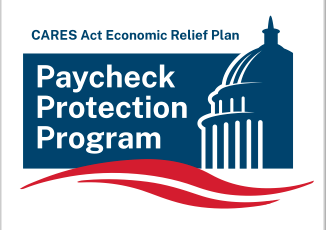By Michelle Price
Special to the UCBJ
WASHINGTON – President Donald Trump has signed into law a bill titled the “Paycheck Protection Program Flexibility Act of 2020” that makes the terms of the loan more favorable to many small businesses.
The bill was passed by the House of Representatives on May 28 and by the Senate by unanimous consent on June 3. It was quickly signed into law by Trump.
Major changes to the bill:
- Reduces the proportion of the loan that businesses must spend on payroll to be eligible for full forgiveness. Now, 60% of PPP funds must be spent on payroll costs like salaries and benefits, while the rest can be spent on other allowable expenses. Previously, the expense ratio for forgiveness is 75%: 25%.
- Extends the repayment period for PPP loans to five years from the current two for new borrowers. The bill did not make the extension retroactive, so anyone who has already closed their loan is locked into two years.
- Expands the forgiveness period for expenses to 24 weeks from eight weeks or until Dec. 31, 2020, whichever comes first. Currently, only money that gets spent in eight weeks from the loan disbursement date – or the date of the first pay period after the loan is disbursed – is eligible for forgiveness.
- Eliminates an earlier rule that penalizes businesses in their loan forgiveness calculation if they don’t maintain their pre-crisis head counts, because many can’t reopen at their previous level of operation.
- Codifies an earlier ruling providing safe harbor for business owners who made a good-faith effort – but were ultimately unable – to rehire furloughed or laid-off staff.
- Gives borrowers 10 months from the last day of the covered period – or alternative covered period – to apply for loan forgiveness.
- Defers principal payments, interest and fees until the final forgiveness decision is made between lenders and the SBA. Currently, borrowers can defer payments for up to six months. But recently updated forgiveness guidance allots banks 60 days to review forgiveness applications, and then the SBA gets another 90 days to make a ruling. Accumulated delays mean some businesses might have to start payments on a loan that would eventually get forgiven. The bill prevents that scenario from happening.
- Employers can now defer their portion of payroll taxes. The bill strikes wording in the “CARES Act” that bars business owners who receive forgiveness on their PPP loans from deferring their payroll taxes. Taxes incurred in 2020 are to be paid in two installments: Half is owed by Dec. 31, 2021, and the other half by Dec. 31, 2022.
These sweeping changes will greatly benefit the hospitality industry that has seen its business slowly returning to the pre-closure levels. Additional changes and tweaks to the PPP are anticipated in the coming months.








